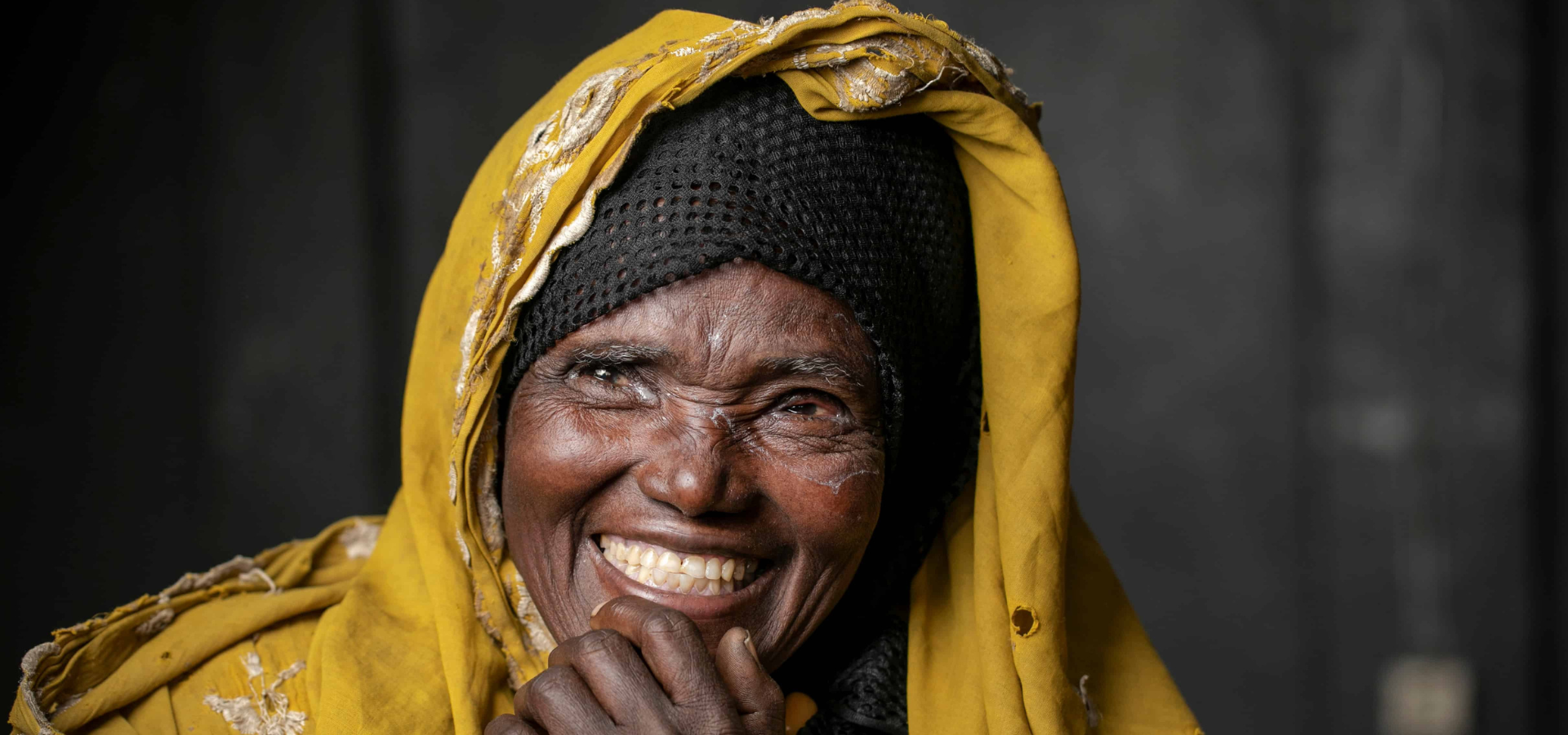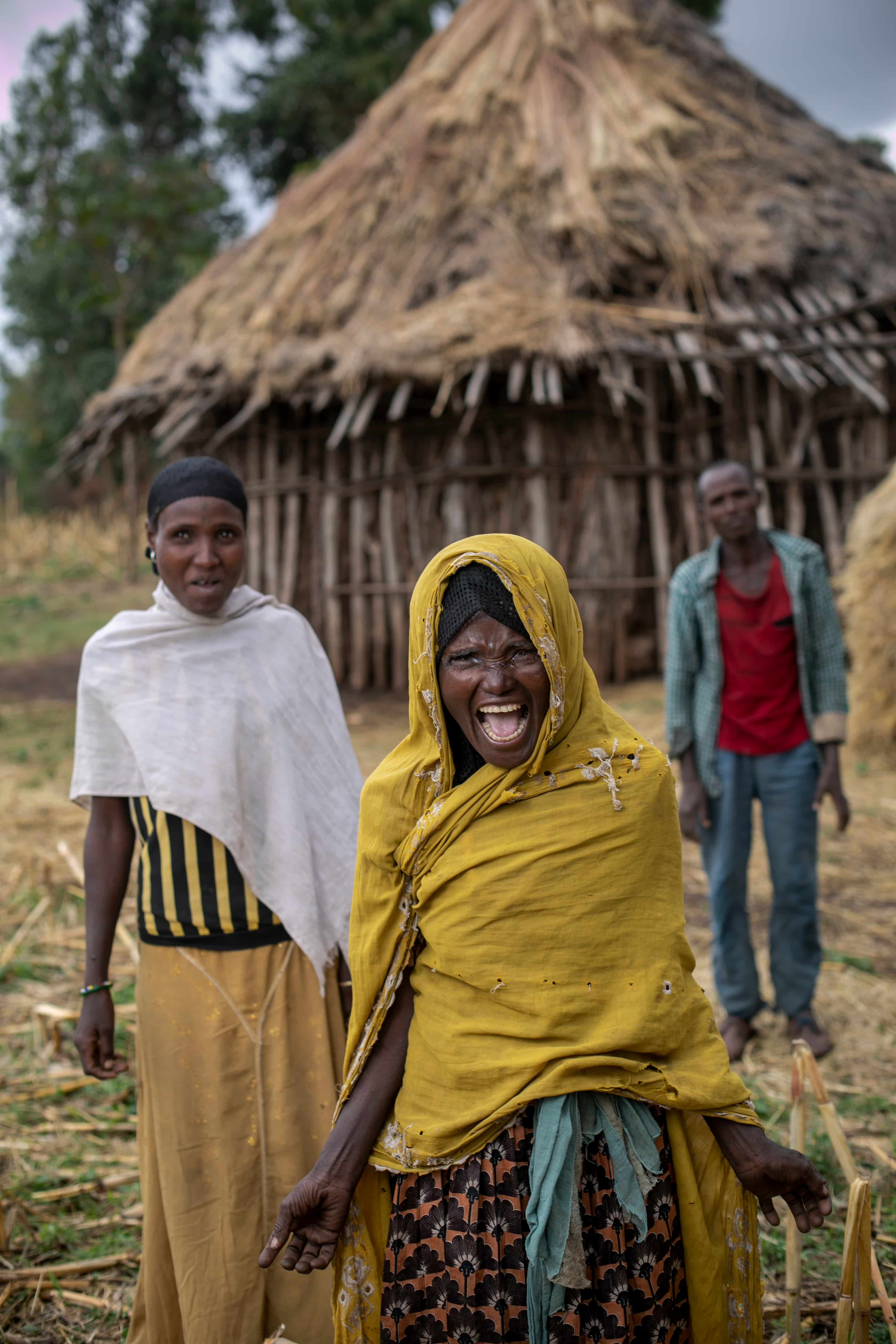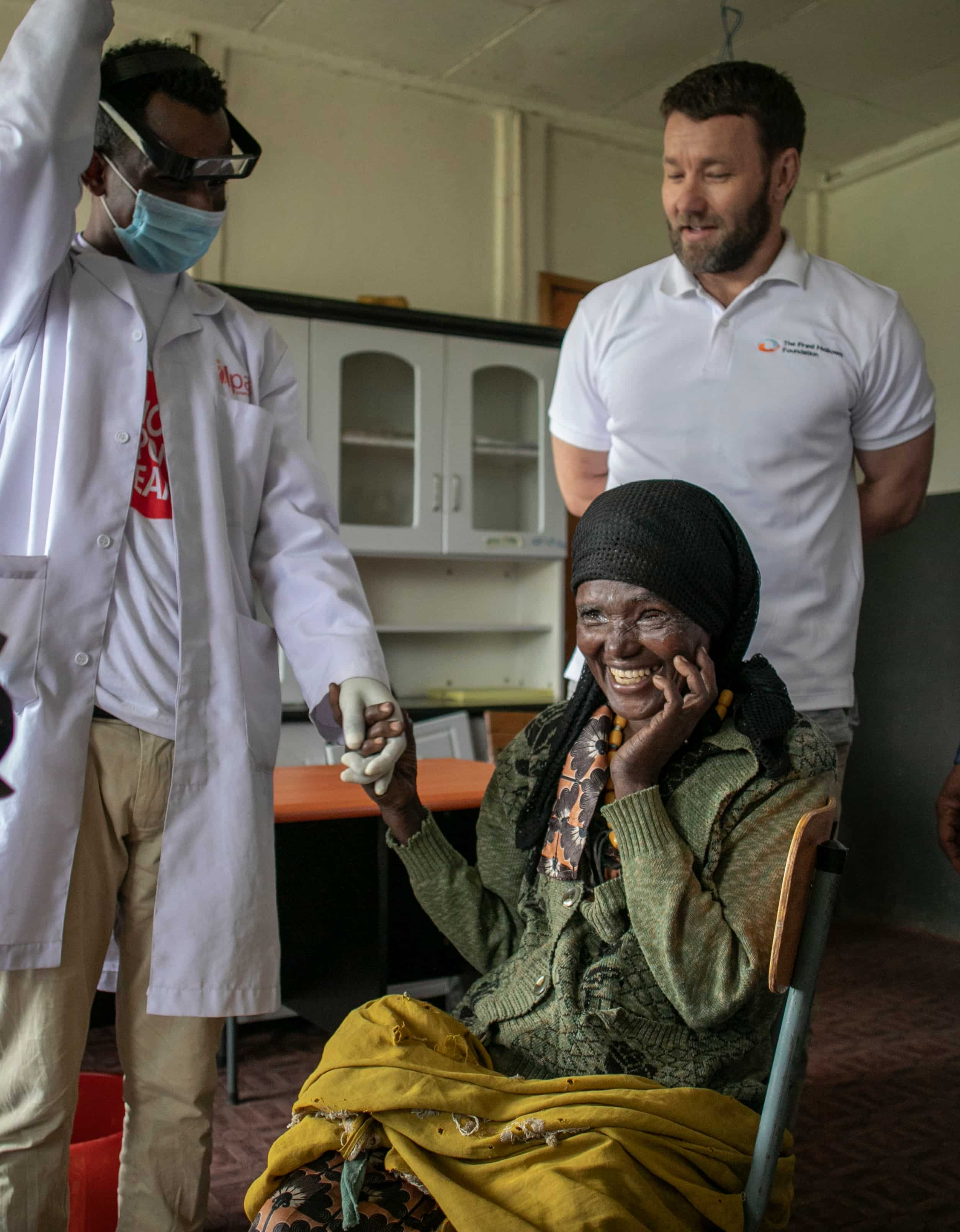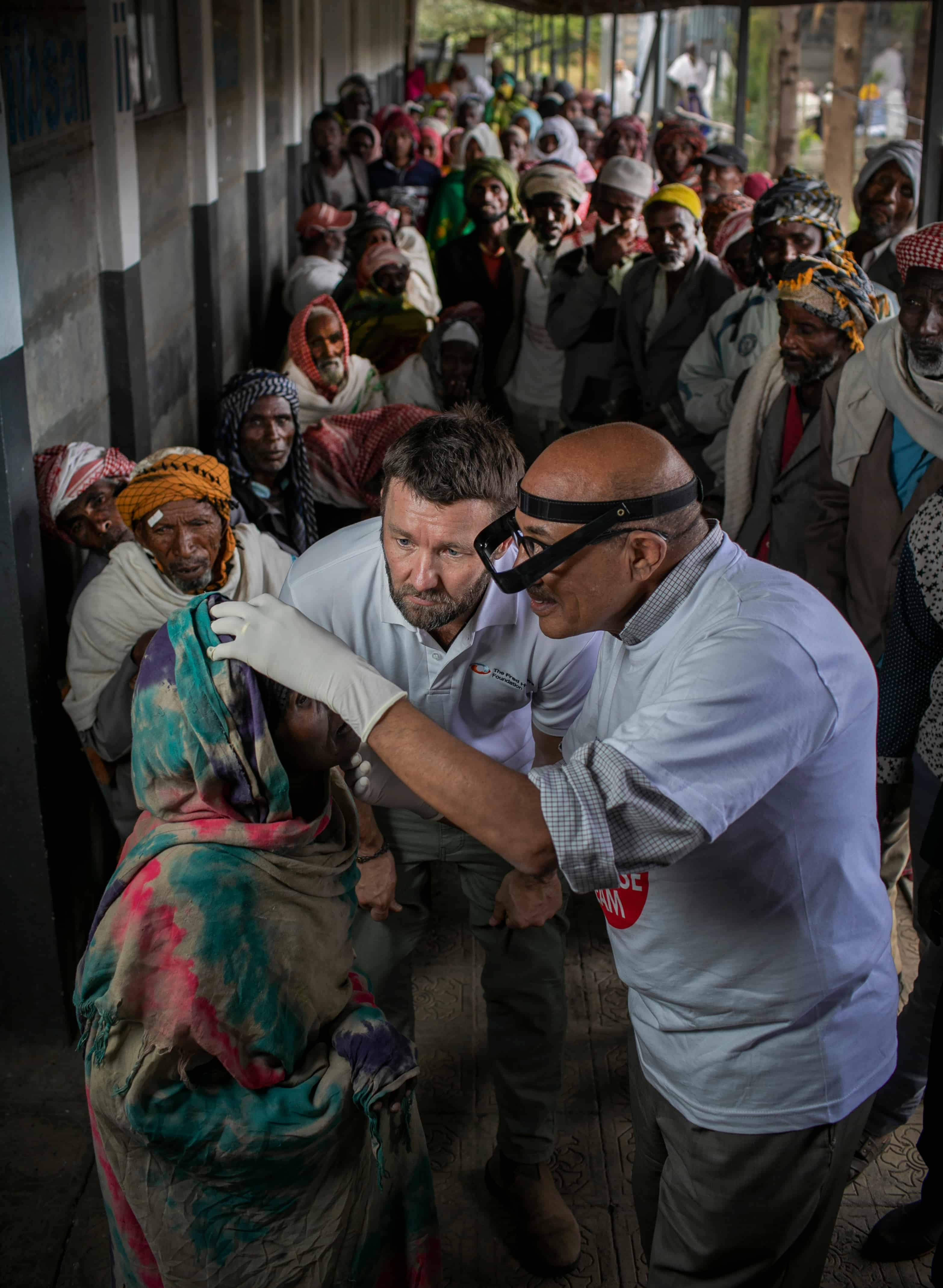Hawiti's Story

She walked three hours to save her sight
In Ethiopia, trachoma remains the world’s leading infectious cause of blindness. An estimated 27 million people live in areas where it is endemic. Women are hit hardest — they make up 70% of cases and are four times more likely to need surgery than men.
Hawiti Tufa, a 60-year-old grandmother of four, is one of those women.
 Photo credit: Michael Amendolia
Photo credit: Michael Amendolia
For more than a year, Hawiti endured constant eye pain. The repeated trachoma infections had scarred her eyelids, turning them inwards until her eyelashes scraped across her cornea with every blink.
“I was scratching my eyes because of the itching sensation,” she remembers. “The first sign was itching and irritation in my eyes and then there was a lot of pain.”
The long road to help
Hundreds of people had gathered under the awnings of the rural health centre in Jeju, four hours south-east of Addis Ababa. The heavens had opened, dumping unseasonal rain, but no one left — they were waiting for the chance to have their eyes screened and treated.
Some had heard the news on local radio. Others came because of the massive community mobilisation campaign. Word had travelled far.
Hawiti’s own journey started that morning, leaving her modest mud hut in the hills and walking more than three hours — 21 kilometres — alongside her daughter, Geno Hussien, to reach the health centre.
A common struggle
Life in rural Ethiopia is tough. Most families survive on small plots of land, far from clinics and hospitals. When trachoma strikes, the pain can be unbearable — and without treatment, blindness is inevitable.
Hawiti’s case was advanced. Her eyelashes were already causing damage to her vision. Still, she hesitated when told surgery was needed.

Photo credit: Michael Amendolia
“I was worried when they told me I was going to have an operation,” she admits.
A new generation of healers
Performing the delicate procedure that would save her sight was Feyera Bekele — a young, integrated eye care worker trained by The Fred Hollows Foundation.
Feyera is part of a new generation of health workers tackling trachoma in the most remote corners of Ethiopia. Their work is vital in stopping the spread of this painful and preventable disease.
The moment everything changed
The surgery was quick, but life-changing. The inward-turning lashes were corrected, ending the constant scratching and protecting Hawiti’s vision for the future.
Looking ahead
Now, Hawiti can get back to life without the shadow of blindness hanging over her. She can care for her grandchildren, tend to her land, and walk her familiar paths without fear.

Photo credit: Michael Amendolia
The bigger picture of our work in Ethiopia is eliminating trachoma entirely, and we’re getting closer every year. But the impact is also in the small moments: a grandmother’s smile after surgery, and the knowledge that her sight — and her independence — have been saved.